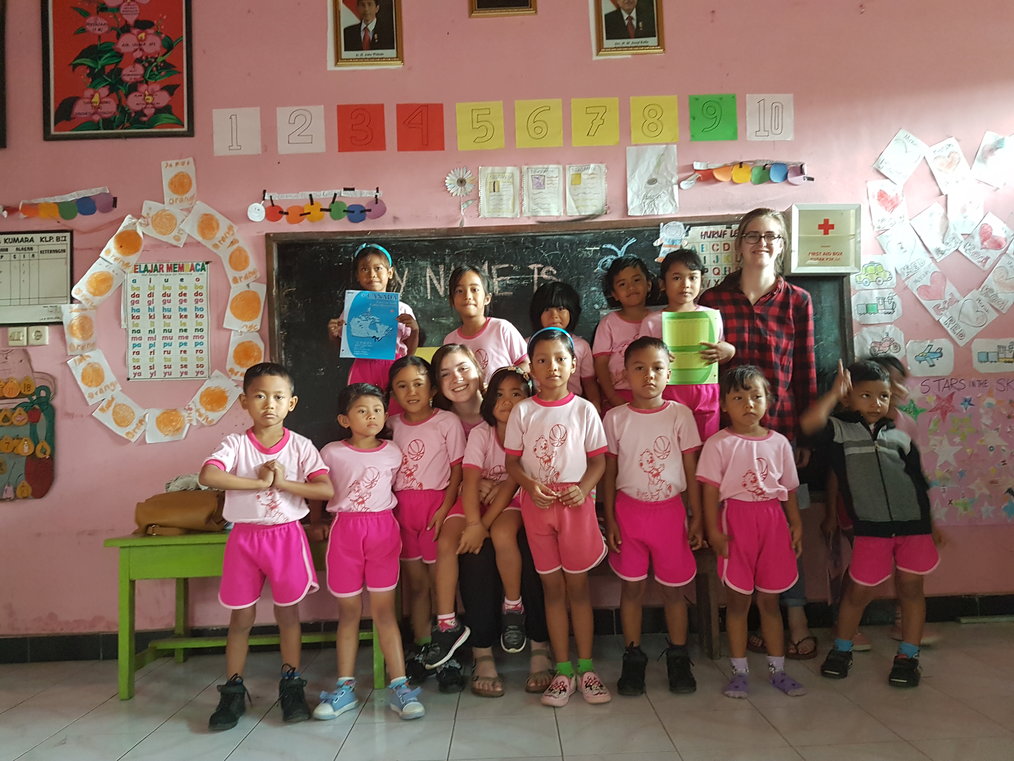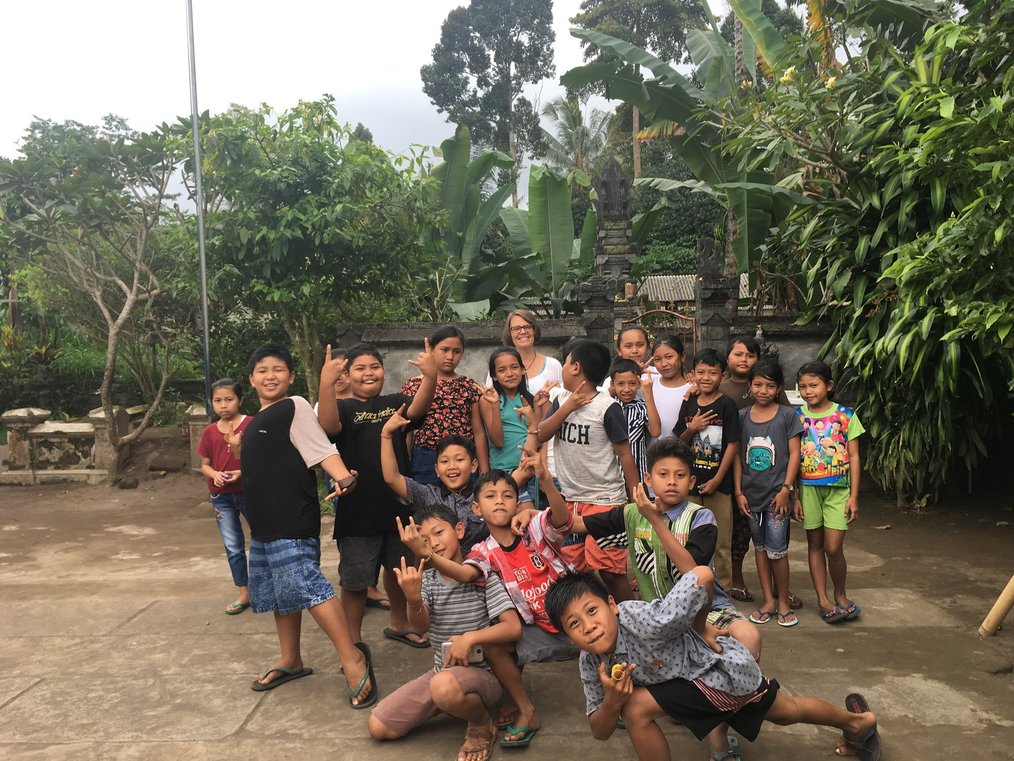What are the Qualifications to Teach Abroad in South Korea?

“I wish I could do what you did!” A lot of people say when I tell them I’ve just come back from teaching English in Seoul, South Korea.
“You can!” I promise.
And then, most often, I’m met with a suspicious stare or, “But I don’t have a teaching degree.”
While teaching overseas isn’t for everyone, a lot of the hurdles people put between themselves and teaching in South Korea stem from misinformation. For example, while a degree in education might help you get a better position and salary overseas, it certainly isn’t a requirement. In fact, I majored in magazine journalism (and that certainly didn’t prepare me for singing “We’re Going on a Bear Hunt” to a room full of Korean first-graders.)
If you have the heart and the enthusiasm to teach in South Korea -- Chukahaeyo! You’re already 50% of the way there. Take a look below to see if you meet the other 50% of qualifications.
What Level of English Fluency Do You Need?
Can you imagine teaching a language you weren’t fluent in yourself? Even if you’d mastered the language, you still might have a bit of an accent, or you might not know some of the language’s idioms and natural phrases.
So, it’s no surprise that South Korea wants to hire only native speakers with a passport from one of their approved list of English-speaking nations -- the U.S., Canada, the U.K., Ireland, New Zealand, South Africa, or Australia.
If you aren’t a native English-speaker from one of these countries, the bad news is that you can’t teach in South Korea. However, don’t get your hopes up for teaching overseas all-together. There’s a few other countries, such as Thailand and Mexico, that you can still teach in.
Do You Need a Degree?

Most English teaching jobs in South Korea require that you have a completed bachelor’s degree. However, if you haven’t finished your bachelor’s degree, but you’re in your third or higher year, or if you have an associate’s degree -- there’s a little loophole. The Teach and Learn in Korea program, or TaLK, accepts these aforementioned candidates through an educational scholarship to teach after-school elementary-age classes in rural areas only.
If you do have a bachelor’s degree or graduate degree, you have plenty of more options. You qualify to teach at hagwons or after-school academies. You can also teach public elementary, middle, and high school through English Program in Korea, or EPIK. You can have a BA in anything -- from microbiology to, yes, even magazine journalism!
And if you do happen to have a degree in education, TESOL, or a related field, EPIK might pay you more to do the same job. Additionally, you could qualify to teach at an international school, which often provide even better salaries and teaching conditions.
Have a master’s degree with teaching experience? You’ve hit the jackpot, especially if it’s in a related English-teaching field. Check Korean university websites for career postings that you're qualified for.
Do You Need a TEFL Certification?
You don’t technically need a TEFL certification to teach in South Korea, and I do know of one person who taught at an academy without one. However, if your degree isn’t in Education or a related field, a TEFL certificate is mandatory for most jobs.
Some programs, like EPIK, give further stipulations, like that your TEFL certificate must have a minimum of 100 hours, and that if you want to teach in certain places like Seoul or Busan, you might need "X" number of in-class hours (meaning you can’t complete your entire TEFL certificate online.) The exact requirements vary per district with EPIK, so check their Updates board to ensure yours meet expectations.
If you don’t have a lot of time to complete a TEFL certificate program in-person, but you have your heart set on a certain district in the EPIK program, there are still plenty of great options. To teach English in Seoul, I received my certificate from International TEFL Academy, which included a 20-hour in-class component that I scheduled to complete myself with a nearby language school.
What Other Requirements Are There?
If you’re still reading this, I assume you’re ready to meet the requirements above. High-five! You’re almost there. The only other requirements that are mandatory involve obtaining your E2 teaching visa. However, if you have time, there are a few other things you should get squared away.
For one, you should learn some basic Korean -- and stat! It isn’t necessary, of course, but it will make your life overseas so. Much. Easier. If you only have time to focus on one thing, I’d focus on learning to read hangul. There’s a lot of signs in South Korea that are written using hangul but are English or Konglish words that are easy to figure out. For example, “커피” sounds like “Kopi.” If this was written at a cafe in Korea, could you guess what it meant? Yes, coffee!
You should also start saving up a bit of money. Oftentimes, you won’t be paid until a month after you start teaching. Basically, you’re paid retroactively. Try and have a cushion of $1,000-$2,000 before taking off. Coming to the country with $500 or less is manageable, but you’ll be cutting it really close.
Visa Requirements to Teach in South Korea

Have everything checked off the list? Now, you just need to get your English teaching visa in order. Some of the documents that follow take a long time to process, so you may want to start processing them even before you secure a teaching position.
Please also note that visa requirements may vary per country and because they can be a bit confusing, your recruiter or hiring school should walk you through them. The following visa requirements apply to Americans only:
- University degree: you really should get a notarized copy of your degree, and then get that sent to be apostilled by your state. While you can have your actual degree notarized and apostilled, much of the time, the school district office will keep your degree (which you will never see again — even if you ask nicely!)
- Sealed university transcripts: you will need three of these if you’re applying to teach at a public school in Korea. Private academies may not ask for these transcripts, but because they’re usually cheap and easy to get, it’s best to keep them on-hand. Keep these transcripts in their sealed envelopes with the university seal or signature.
- Criminal background check: this check needs to be done by the FBI. These background checks take a long, long time to process, and require some work on your part to complete various parts, like getting your fingerprints done. If you’re really pressed for time, you can pay a company like NBCI to have it expedited. After you get the check, you then need to send it to be apostilled by the Department of State in the U.S.
- Signed health statement: the school you’re applying to or your recruiter should provide you with this questionnaire that you must fill out and sign.
- Photocopy of your passport & five passport-sized photos
- Signed school agreement/contract
The above isn’t a comprehensive list of what you might be asked to provide to your recruiter or school, but it’s a start. It may sound like a lot, but if you set up a timeline for yourself, you’ll have no trouble getting the documents in on time.
Putting It All Together
So, you can’t just book a flight and waltz into your new teaching job overseas. But, the process to become a teacher in South Korea is pretty straightforward. And the good news? You don’t even have to have an English teaching degree to do it. Whether you’ve majored in a subject you haven’t fallen in love with and want to try out teaching, you want to travel the world, you want to save money, or a combination thereof, South Korea is waiting for you.
In fact, I told myself I’d only stay for a year, and I ended up staying two. And if it weren’t for friends and family who missed me back in my home country, I might not ever have left my little loft in Seoul.



